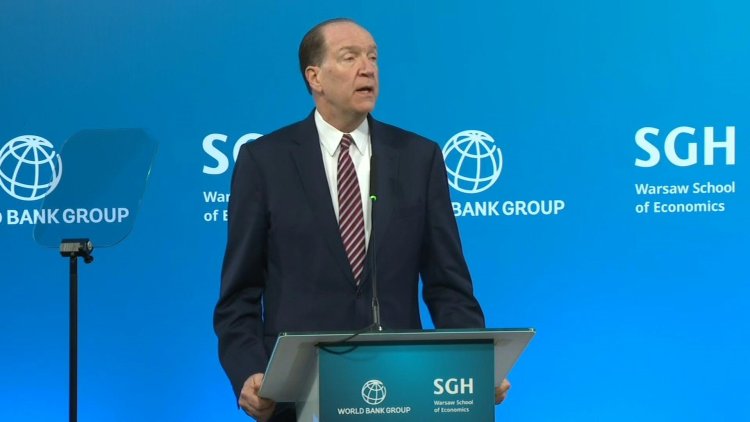Ukraine war fuels 'overlapping crises': World Bank's Malpass

The Russian war on Ukraine has set off a chain reaction in the global economy, pushing energy and food prices higher, exacerbating debt concerns and potentially worsening poverty and hunger, World Bank President David Malpass said.
Faced with these "overlapping crises," the leader of the development lender urged advanced nations to keep markets open, removing trade barriers and reversing policies that concentrate wealth.
The war came as the global economy was trying to right itself following the Covid-19 pandemic, while navigating supply chain snarls that created shortages and a surge in inflation that has sparked unrest in some countries.
New lockdowns in China have added further uncertainty to the recovery.
"Never have so many countries experienced a recession at once, suffering lost capital, jobs, and livelihoods. At the same time, inflation continues to accelerate," Malpass said during an event at the Warsaw School of Economics.
Beyond the immediate humanitarian crisis caused by the war, "Supply constraints and disruptions have fueled price increases and worsened inequality around the globe."
Ukraine is a key source of grain while Russia is a major producer of energy and fertiliser needed for agriculture, and the war is "creating sudden shortages of energy, fertiliser, and food, pitting people against each other and their governments," Malpass said.
An "intense drought" in South America is making the food situation worse, he added.
"For every one percentage point increase in food prices, 10 million people are expected to fall into extreme poverty," he said, noting, "Malnutrition is expected to grow."
The World Bank issued a grim outlook for Ukraine, projecting the economy would collapse, with GDP dropping more than 45 percent this year, while Russia will see an 11.2 percent decline.
But Malpass said countries far beyond the region are feeling the conflict's pain.
Protests in Peru have taken to the streets to demand government action, as did people in Sri Lanka, where the government announced it was defaulting on its $51 billion in foreign debt.
Malpass has been sounding the warning about the growing debt burden in developing nations, and said the total "has risen sharply to a 50-year high."















